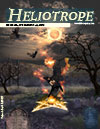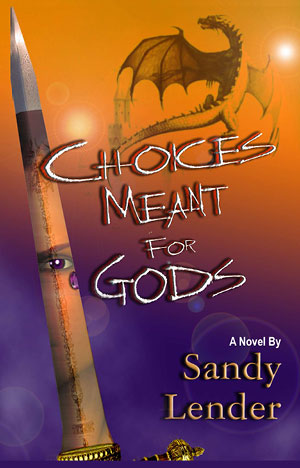 |
|
Volume 1 Issue 3 Fall 2007 |
|
|
Installment #1: John Calvin Batchelor's The Birth of the People's Republic of Antarctica and Brian McNaughton's The Throne of Bones
Shadow Cabinets are the great equalizers, the great communicators. It is only within the dark confines of a Shadow Cabinet, like certain Cabinets of Curiosities, that books and authors with little in common find themselves shoved up against one another, under glass. Like the eccentric elements in photographs by Rosalind Purcell, juxtapositions create their own classifications. Thus, the subjects of this first column: two books, two authors, who traveled in completely different circles, and yet wound up in the same place: John Calvin Batchelor and his The Birth of the People's Republic of Antarctica (1983) and Brian McNaughton and his The Throne of Bones (1997). The former is a devastating but ultimately compassionate examination of the savage brutality of human nature. The latter is a dark fantasy story cycle set in Seelura, a place that while uniquely its own also evokes Robert E. Howard and classic-era Weird Tales. Both constitute exceptional accomplishment, and both are now largely forgotten. Already. I am Grim Fiddle. My mother, Lamba, first spied me in her magic hand-mirror late in the evening of the spring equinox of 1973. She was dancing by herself at the time, in the rear of a shabby beer hall called The Mickey Mouse Club, located in the foreign quarter of Stockholm, the capital of the Kingdom of Sweden. She was midway between the music box and the bank of telephone booths. She was not under the influence of any drug, though my maternal grandfather was a Lutheran preacher. There is no further explanation of Lamba's vision forthcoming. Mother was Norse sibyl. - The opening paragraph of The Birth of the People's Republic of Antarctica A product of the 1960s and 1970s, John Calvin Batchelor had what many writers would consider a very good career. Between 1981 and 1994, he had eight novels published from prestige publishers like Henry Holt. Almost all of these books received some kind of critical acclaim and coverage. However, around the mid-1990s, Batchelor fell off the map, only to reappear as a radio host in New York City after 2000. -Sponsored Advertisement- "Some days, I just want the dragon to win." The truth is, Batchelor could be uneven. I always preferred his more exotic work to the American stuff like Gordon Liddy Is My Muse. He could be too derivative of Thomas Pynchon. He could be difficult in a frivolous way. But at his best, he deserved better than he got. Batchelor's work has a fierce intelligence, a deep and abiding interest in the issues of the contemporary world, and an incisive view of the individual's place in that world. He took chances, sometimes leaping off the edge of the world. He could tell a cracking good story, too, supported by a quirky and rich and brave imagination. (For all I know, he still possesses these qualities, but his books are out of print and he hasn't published anything new for over a decade. According to Wikipedia, however, he is working on a new set of novels.) The Birth of the People's Republic of Antarctica is, in my opinion, his best novel. I remember the first time I read it, picked up randomly because I liked the title. As I began to read, I realized I had something unique in my hands, something that was about to blow the top of my head off. Beleaguered freighters full of plague victims set adrift by governments unwilling to deal with sick refugees, fated to roam the seas? A future of religious war and conflict over limited resources? A man named Skallagrim Strider, larger than life and outside of the law, who leads these refugees to a new life in a free republic in Antarctica? And all of this recounted by an observer both uncanny in his observations and a fool. The very act of writing The Birth was, to my mind, audacity of the first order, showing the kind of nerve you wish you'd see more often. Further, in retooling parts of the myth of Beowulf, Batchelor had created a mythic resonance that made the whole thing seem timeless--even as it didn't need that, was as timely then as it now in its warnings and its revelations. Parts of this novel, merciless in its execution and intent, made me cry. Parts of it reminded me of John Brunner's Stand on Zanzibar. Parts of it were literally like nothing I'd ever read before. Batchelor's observations on the frailty, cruelty, futility, and bravery of human life horrified me and moved me. Somehow, he managed to use summary more often than scene and get away with it (something that influenced me in writing Shriek: An Afterword), juxtaposed scenes both terrifying and funny, and never let the reader or his characters off the hook. But, honestly, I don't think I can put it any better than whoever wrote the description on the back cover of the trade paperback edition: "Batchelor has written a stunning lament about the beastliness in man and the violence in nature, about the darkness of hope abandoned and the blood-price of hope regained. It is a bewitching work of profound and prophetic vision." And now forgotten, at a time when it is most relevant, when many other fictions I read seem childlike in comparison.
Even if they were not immediately eaten by their mothers, the offspring of ghouls would be short-lived, for they are typically formless things that seem less the product of parturition than pathology. It therefore roused great envy among the mining community when one of their number gave birth to a perfectly formed baby boy; who would have looked rosy, had anyone been so perverse as to light a lamp in the dank niche where he was born. - the opening of "The Ghoul's Child" from The Throne of Bones Brian McNaughton achieved his greatness after a lifetime of anonymity and toiling in the trenches of the horror field. McNaughton first started publishing horror in the 1960s, at a time when there was no recognizable horror field as such. The only big authors working in horror were people like Robert Bloch. McNaughton got by with a newspaper day job and writing pulpy mass market paperbacks. Then, when things got worse, in the 1970s, he wrote, as he put it, "a lot of books with the word 'Satan' in the title." He also wrote for men's magazines. When he reappeared in the early 1990s, McNaughton was only about a decade away from his own death. At this point, he was working full-time jobs in factories, unable to find a publisher for his work. He had stopped writing. Then, for some reason, he started writing again. This time, though, something was different, or at least seems different from my perspective. He had a vision, and he appeared to be writing solely for himself. He sold his first new stories of Seemura to magazines in the now-resurgent horror field, places like Terminal Fright, TEKELI-LI, and Weird Book. The Seemura stories had the look and feel of odd adult swords-and-sorcery tales. They had an originality and seriousness to them that bypassed the easy wit of Fritz Leiber's Fafhred & The Grey Mouser series. McNaughton was Old School, in some cases seemingly Old Testament. He was Clark Ashton Smith without the pretty. He was Lovecraft exiled to a foreign, murderous land. The pulp roots from whence McNaughton came provided the grit and grime for these stories, enhancing their versimilitude. Visceral and extreme, they could be moody, atmospheric, and touching. Necromancers and sorcerer kings, shamen and lovely princesses--all of these elements should have seemed familiar, and yet in McNaughton's hands they became exotic, fundamentally strange, and original again. When McNaughton's collection of the Seemura stories, The Throne of Bones, appeared in 1997, it received acclaim in the horror field, even won the World Fantasy Award. And then came a trade paperback edition. And then that went out of print. And then a second collection, not as good as Throne. And then McNaughton died, and now, except among some hardcore horror fans, no one remembers McNaughton, or his one remarkable book. Two writers. One child of the literary mainstream, with pedigree, the other a pulp author for much of his life, touched by sudden vision, sudden clarity. Both now silent. Both now part of the Shadow Cabinet. There was a time in the mid-1980s when Batchelor was golden. There was a time in the mid-1990s when McNaughton had a modicum of fame and attention. At both times, for both men, to readers and reviewers, it must have seemed as if they were fated to advance from strength to strength. This did not happen. Instead, one died and the other stopped writing. Who now writing will join the Shadow Cabinet of the future? Who will write something so powerful that it so colonizes the minds of certain readers that they will care enough to remember it in print? Some answers next time, from within...the Shadow Cabinet.
|
Sponsored By
Artwork By
Become a Sponsor








